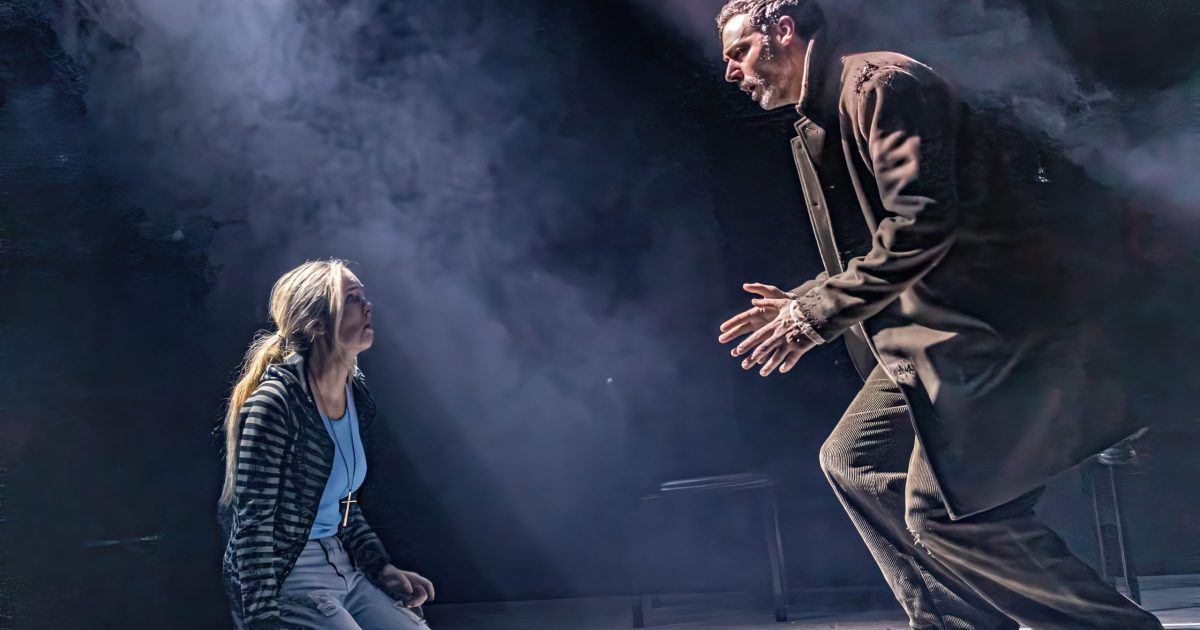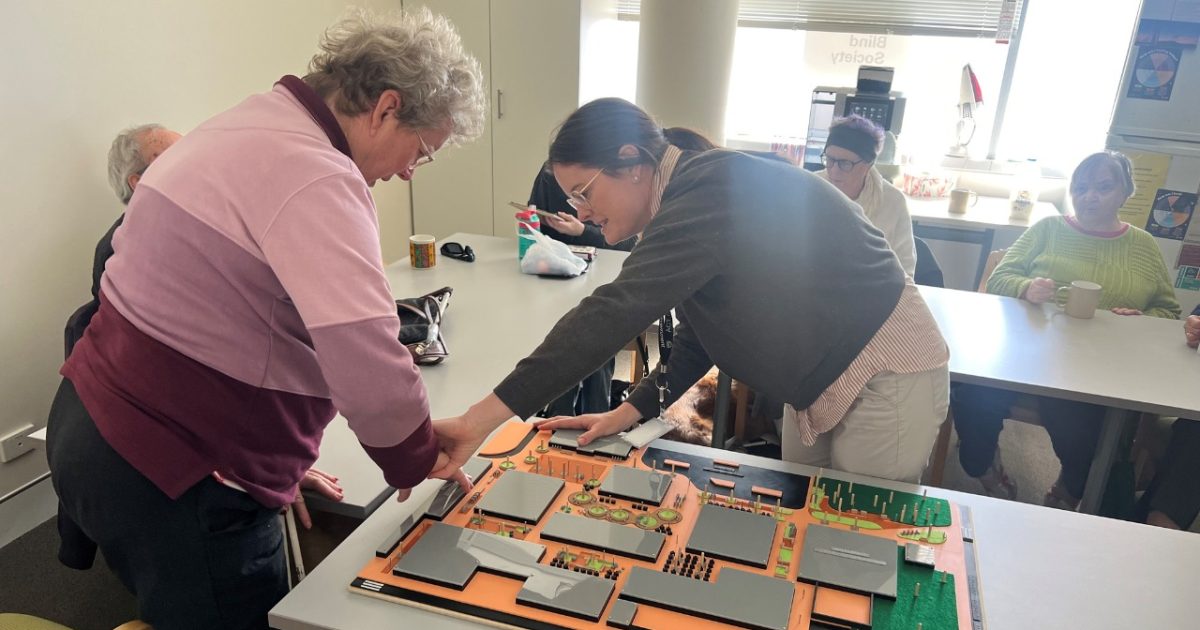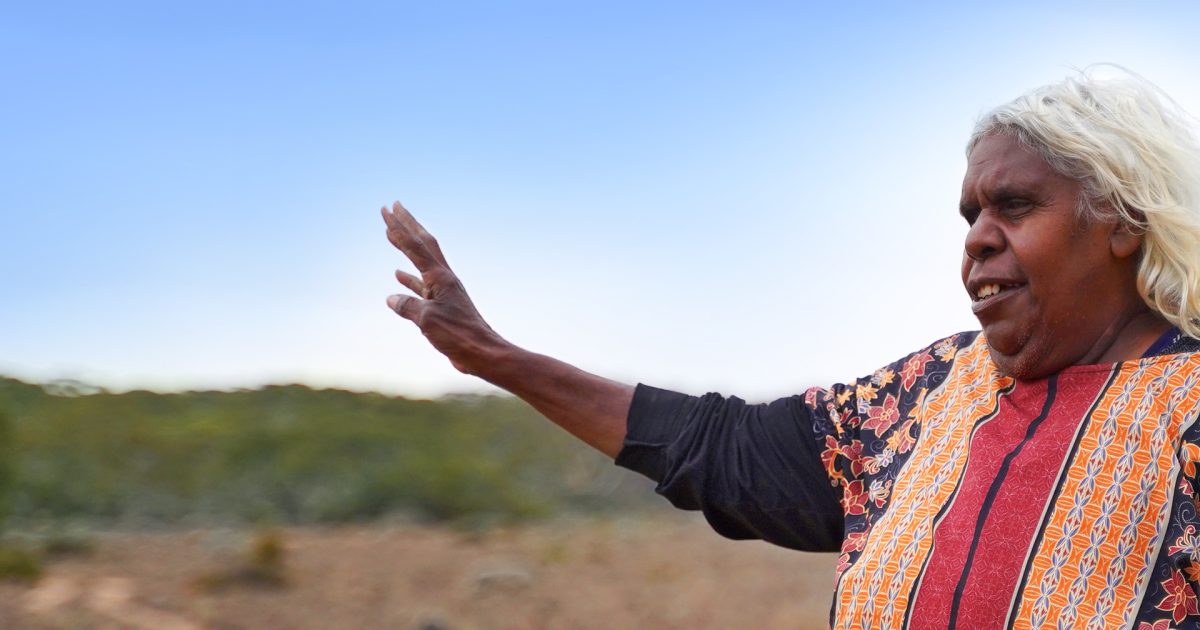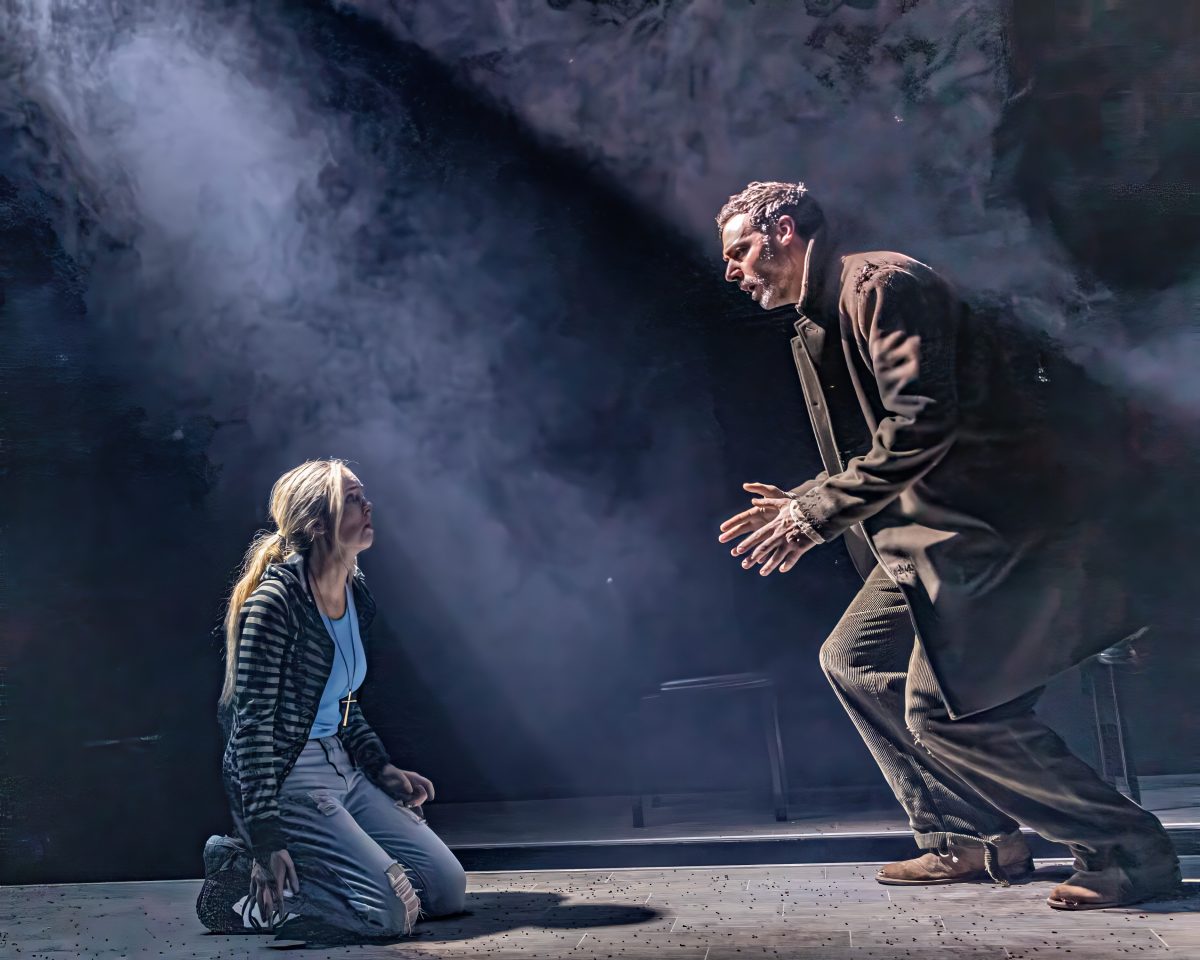
The Street Theatre’s Josephine Gazard and Christopher Samuel Carroll in Crime and Punishment. Photo: Canberra Streets.
The politics of the law is getting a thorough workout at Canberra’s Street Theatre, which has creatively linked a discussion panel on restorative justice in the ACT with Fyodor Dostoyevsky’s epic novel Crime and Punishment.
A compelling 90-minute theatre adaptation of the story is having a short season at The Street until 7 July, but on Thursday night (27 June) the theatre hosted a preshow event with some of Canberra’s best legal minds and practitioners.
The panel brought the topic a little closer to home than the 19th century Russian setting of the novel (contemporised somewhat in the play) by discussing crime and punishment on the local level.
The panellists were Adrian McKenna (partner, Hugo Law Group & ACT Law Society’s criminal committee); Lorana Bartels (ANU professor of criminology); facilitator Desmond Manderson (professor, author and playwright); Richard Dening (senior director, ACT Restorative Justice Unit); and Deborah Martin (founder of Tjillari Justice and 2022 ACT Volunteer of the Year).
Their theme was restorative justice and the process where all stakeholders affected by an injustice might have an opportunity to discuss how they have been affected and help decide what should be done to repair the harm.
Applying it to crime, restorative justice builds on the idea that because crime hurts, justice should heal.
Successful accounts were shared where victims and perpetrators have been brought together to “talk it out” and to “hug it out” as a precursor to sentencing.
Failures in the ACT justice system were also discussed, especially over the high rate of incarceration for Indigenous offenders.
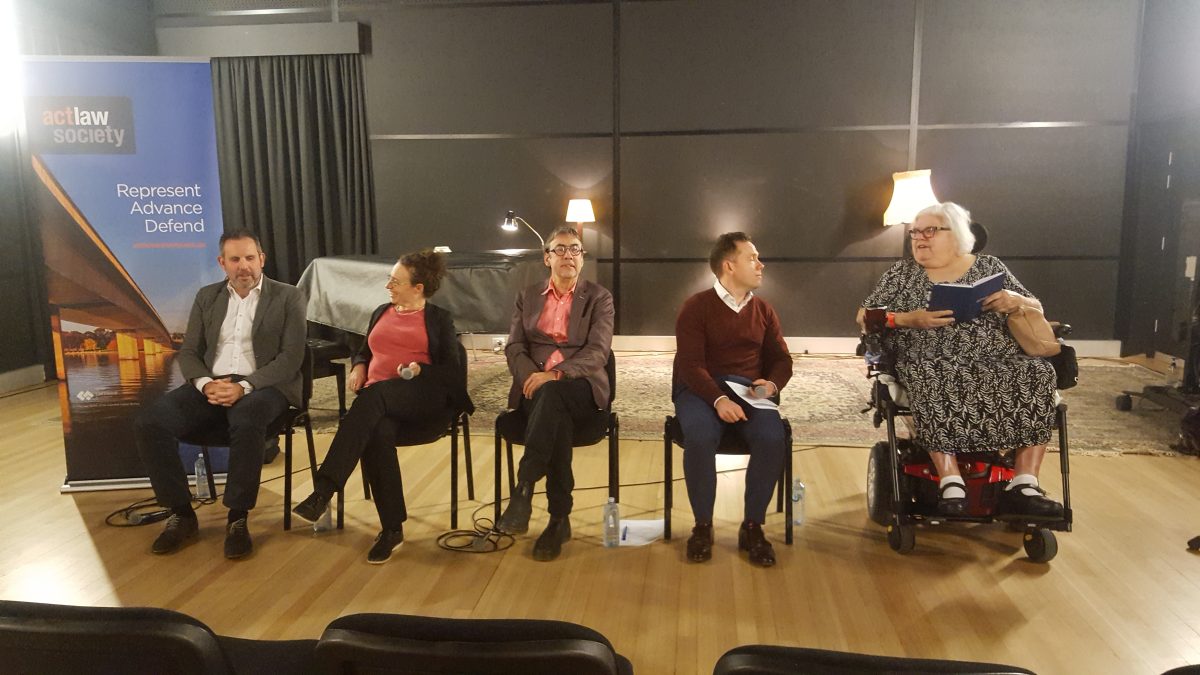
Adrian McKenna, Lorana Bartels, Desmond Manderson, Richard Dening and Deborah Martin discussing the politics of crime in the ACT. Photo: Supplied.
After the discussion the audience was able to enjoy the play and ponder how some of those concepts were treated by the production.
With the catchcry of “one death, in exchange for thousands of lives – it’s simple arithmetic”, Dostoyevsky’s story is regarded as one of the greatest crime novels ever written.
It centres on the mental anguish of impoverished former student Rodion Raskolnikov, whose moral dilemma festers over his ‘right’ to kill an awful, unscrupulous pawnbroker who rips him off and hoards lots of money.
The murder, he theorises, would not only liberate him from poverty but would also allow him to use the victim’s money to improve the lives of many others.
Some crimes, he tells himself, are justified if they remove obstacles to the “higher goals of extraordinary men” like him.
Raskolnikov believes himself to be above the law and to be extraordinary to such an extent that he may decide who is worthy of life and death.
But he wasn’t counting on having to deal with Inspector Porfiry Petrovitch and his masterful mind games.
It is a suspenseful drama of redemption, as well as a thrilling detective story.
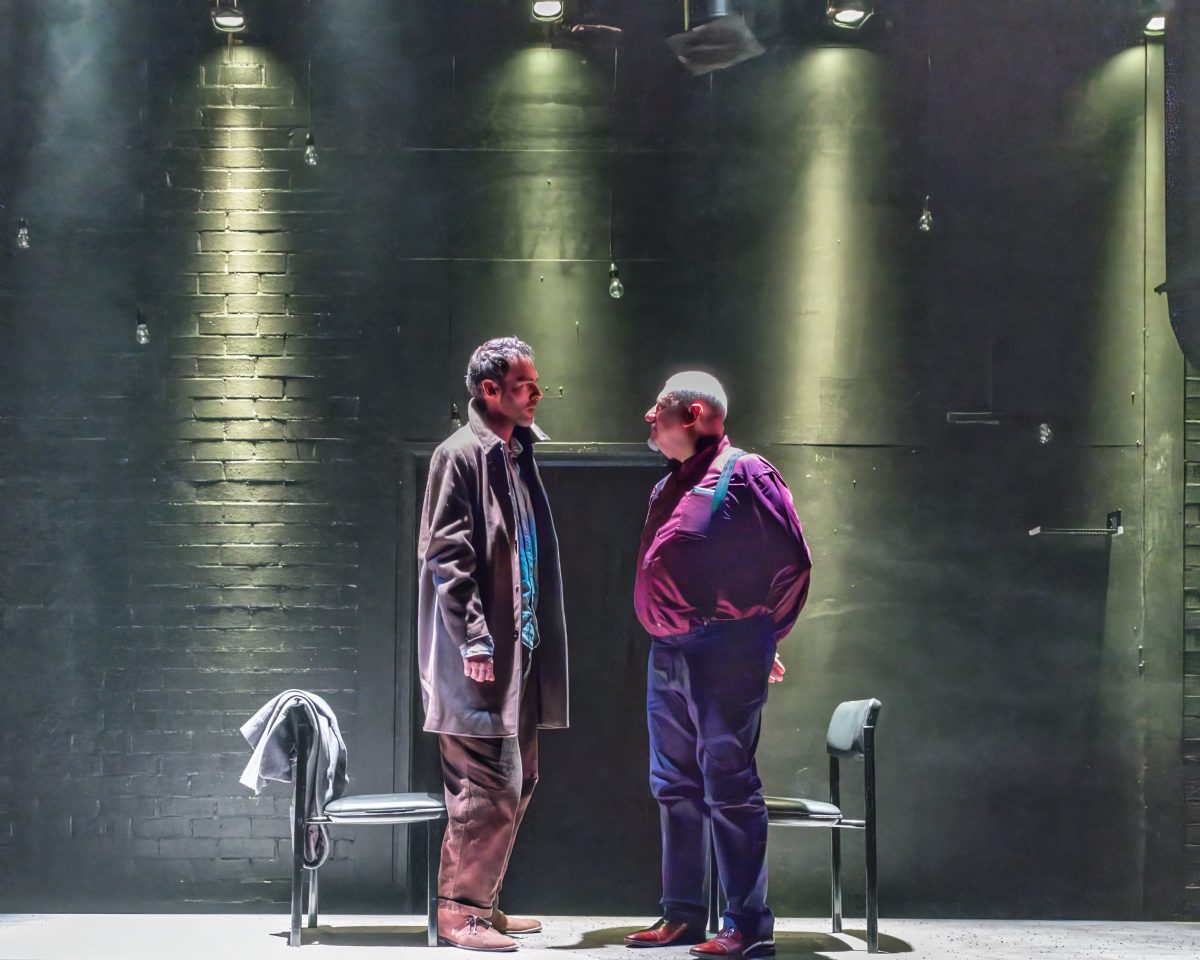
Christopher Samuel Carroll and PJ Williams in Crime and Punishment. Photo: Canberra Streets.
As director Caroline Stacey says: “The forces that disconnect humans from each other, the act of killing for an idea or principle, political violence domestically and globally all make Crime and Punishment a potent work to put on our stage now.
“A whydunit, not whodunit taking us right into the mind of a murderer, into the torture of guilt and secrets left unsaid, and into the redemptive power of suffering as a path to having a life again.”
Adapted by Marilyn Campbell-Lowe and Curt Columbus, Crime and Punishment is told by three actors – Christopher Samuel Carroll, Josephine Gazard and PJ Williams – playing a number of characters.
The Street Theatre’s season of Crime and Punishment plays until 7 July. For more information and bookings, go to the theatre’s website.

